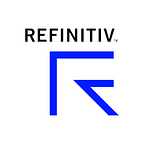After global carbon markets rose to a new record in 2020, Hæge Fjellheim, Head of Carbon Research, analyses the factors behind the increases and identifies initiatives and events that will help to determine future trends.
Carbon markets worldwide hit yet another record in 2020: The collective value of all trades of carbon emissions permits around the world topped €229bn, based on our data about the volume transacted and the average price in the different regional markets.
What’s more, this year isn’t even an outlier: It’s the fourth consecutive year that global carbon trading has hit a new record — this year’s total market value is more than five times the value in 2017.
What is causing carbon markets to rise?
It seems strange that markets for emission permits would be growing in a year where a global pandemic actually made for far lower emissions due to depressed economic activity. However, we need to remember that total market value is volume times price — either more emissions permits changed hands over the year, or the ones that transacted did so at higher prices, or both.
That’s exactly what happened in most of the world’s carbon markets in 2020 — last year saw an increase in both prices and transactions.
Our annual year-in-review report takes a look at how these volumes and prices played out, starting with the market that accounts for most of the carbon trading globally: The European Union Emission Trading System (EU ETS).
EU sets ambitious climate change mitigation targets
In Europe, expectations that the carbon market’s supply/demand balance would be shrinking dramatically in the coming years made for a steep price rise, despite the fact that estimate that actual emissions in the power and industry sectors were down 14 percent in 2020.
European carbon prices fell rapidly in March when the COVID-19 pandemic hit the region, but later recovered to record highs above €33/t by the end of the year. Prices have continued to reach unprecedented levels in 2021 exceeding €37.5/t as of 3 February 2021.
Market players are willing to pay more for EU allowances because they foresee them being ever more scarce going forward.
Why this expectation of scarcity? EU decision-makers got increasingly serious over the course of 2020 about making the bloc’s climate change mitigation more ambitious.
On 11 December, exactly one year after the European Commission […]
This is an except of the original blog article published on Refinitiv Perspectives. Continue reading the rest of the article here.
For new insights on artificial intelligence (AI), digitalization, big data, risk management, compliance, fighting financial crime and the future of trading and investing, visit Refinitiv Perspectives and subscribe to our weekly newsletter.
Who is Refinitiv?
Refinitiv, an LSEG (London Stock Exchange Group) business, is one of the world’s largest providers of financial markets data and infrastructure. With $6.25 billion in revenue, over 40,000 customers and 400,000 end users across 190 countries, Refinitiv is powering participants across the global financial marketplace. We provide information, insights, and technology that enable customers to execute critical investing, trading and risk decisions with confidence. By combining a unique open platform with best-in-class data and expertise, we connect people to choice and opportunity — driving performance, innovation and growth for our customers and partners. Visit https://www.refinitiv.com
Join our communities and be part of the conversation on LinkedIn, Twitter, YouTube, Facebook and Instagram.
